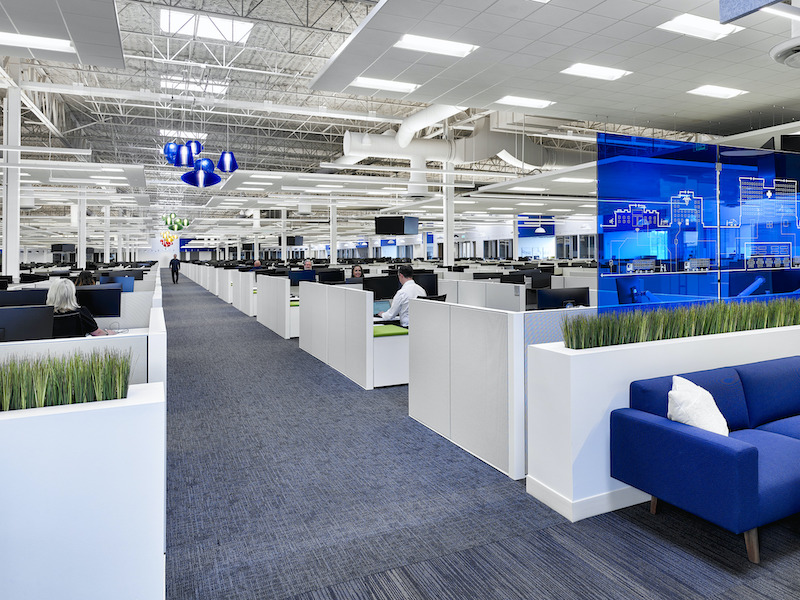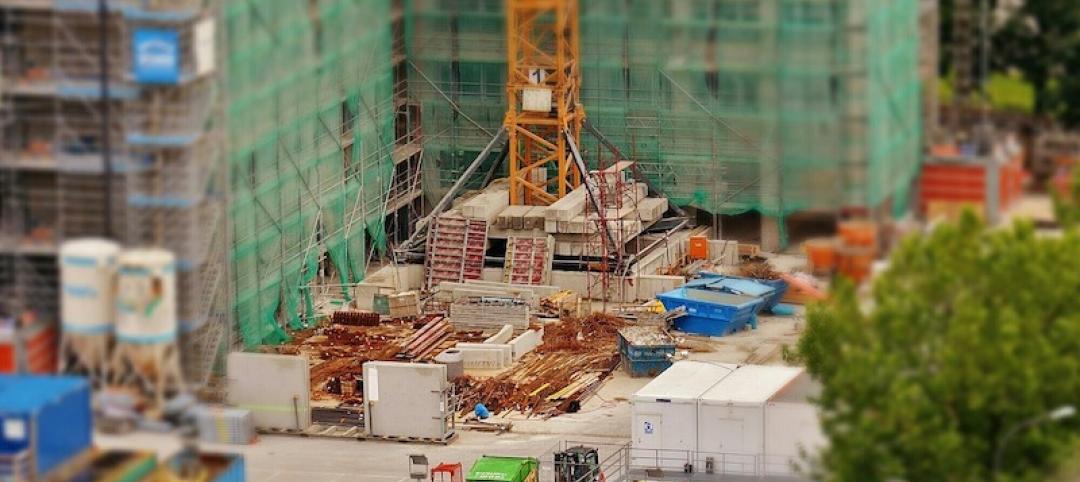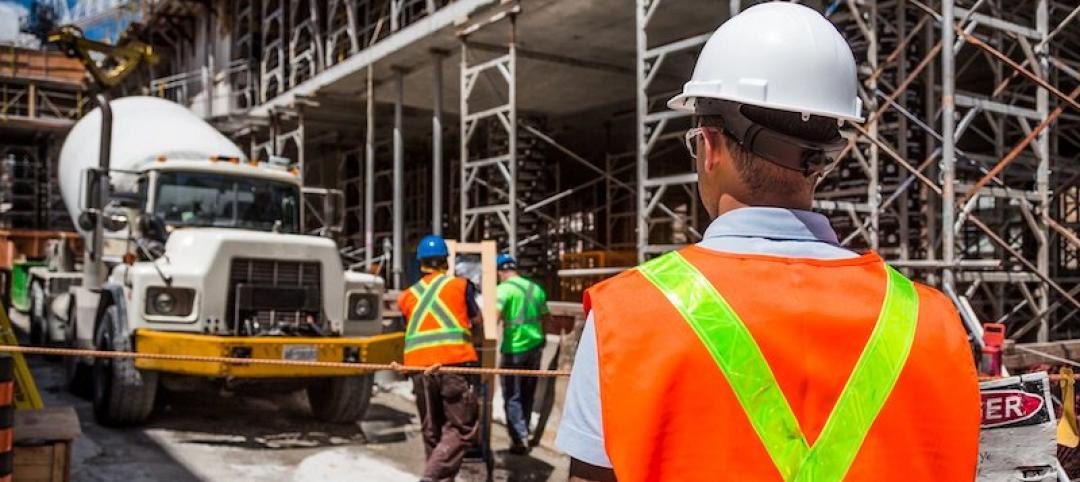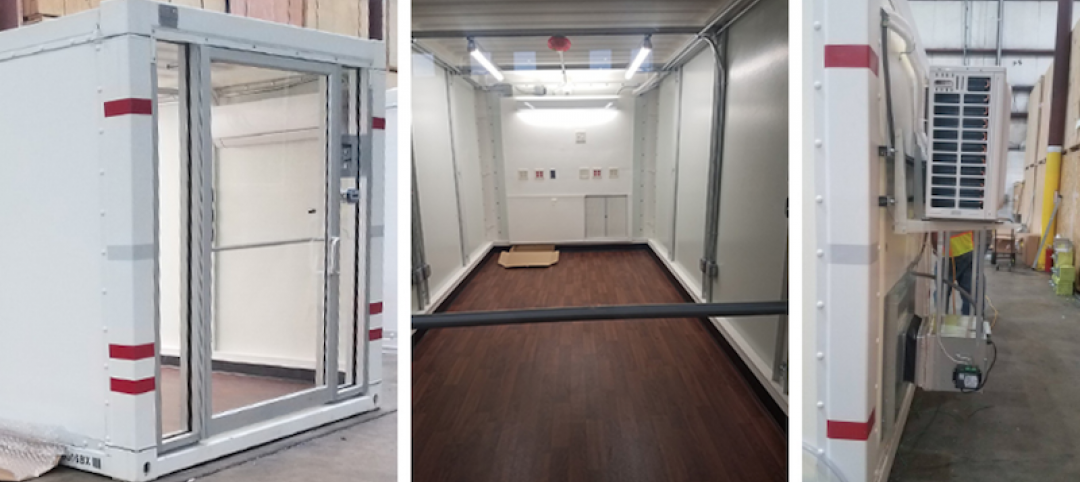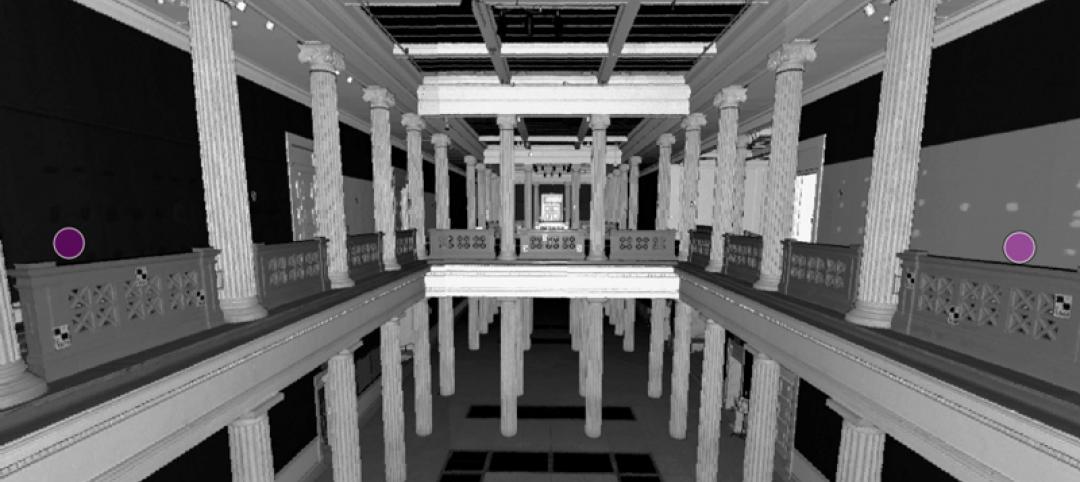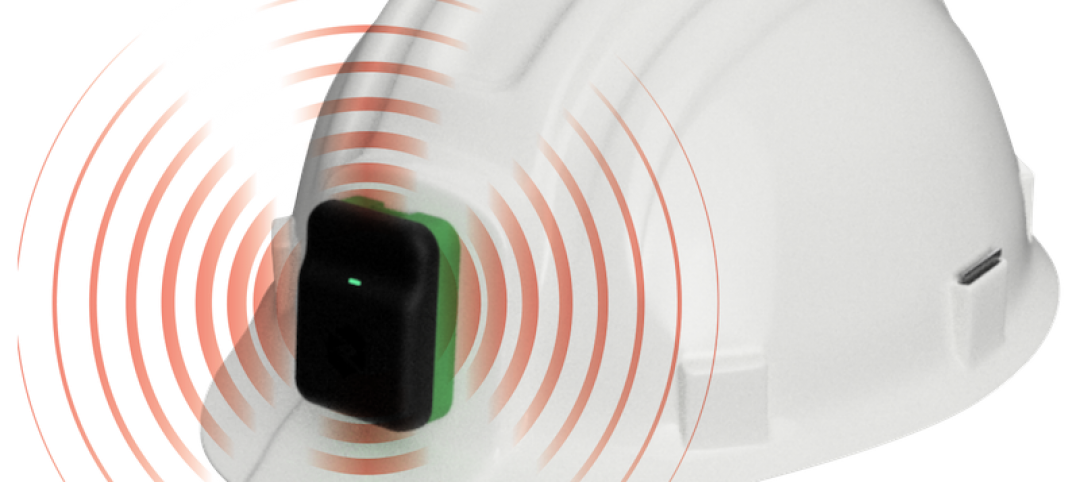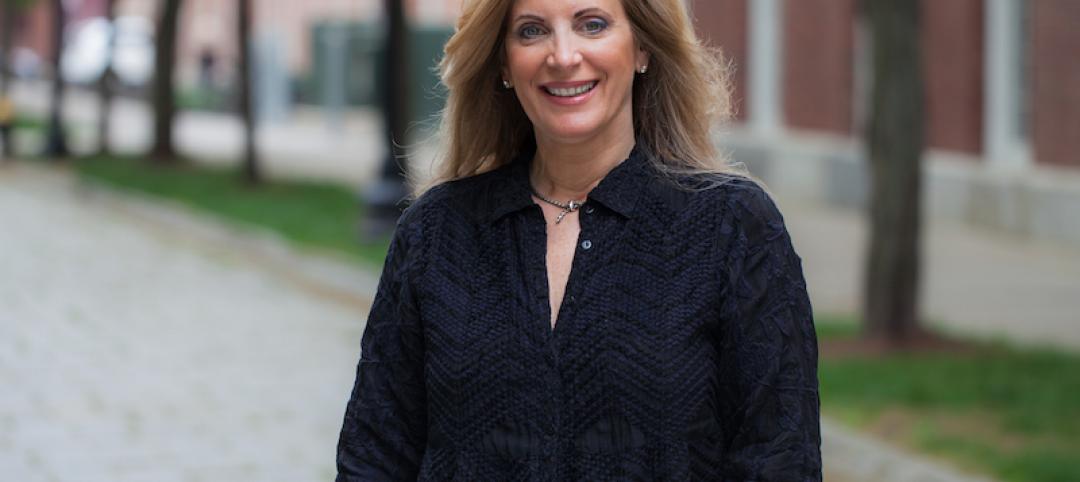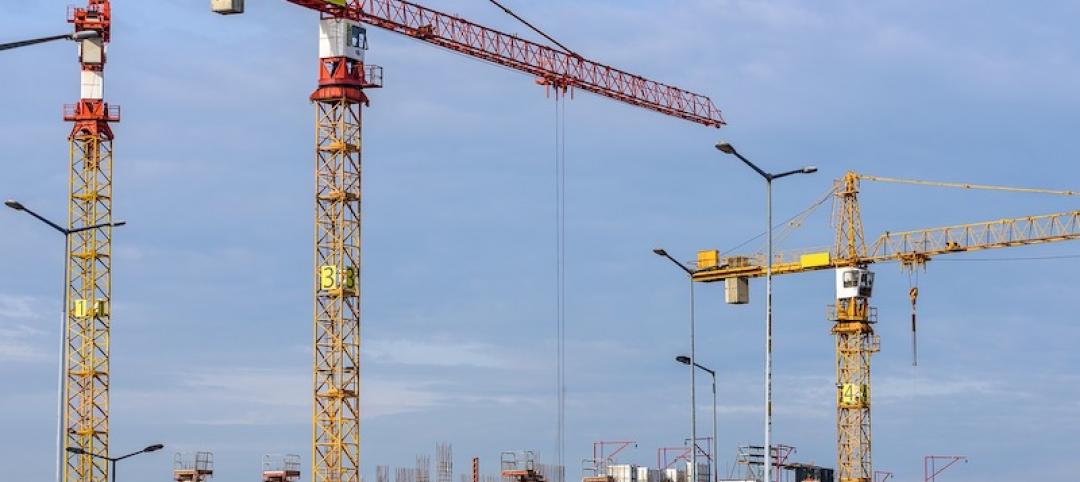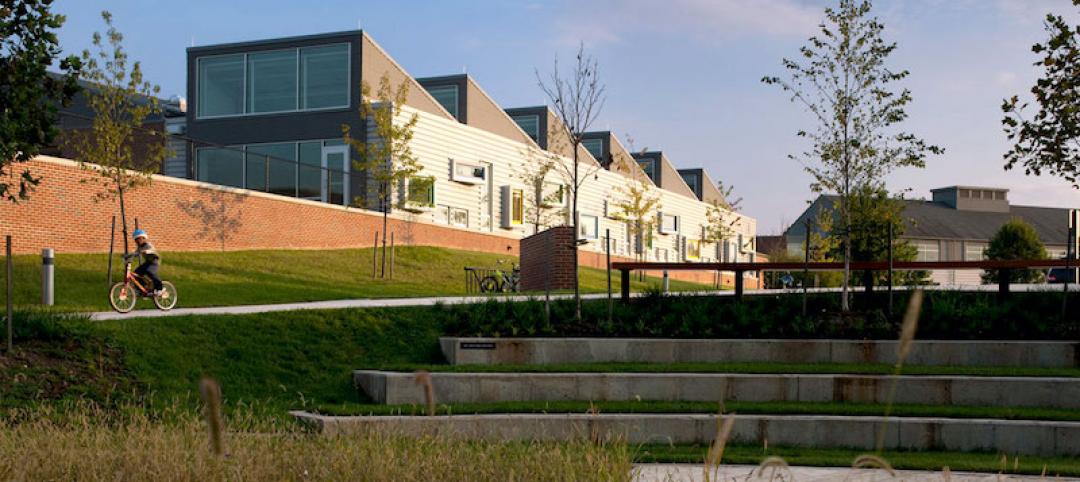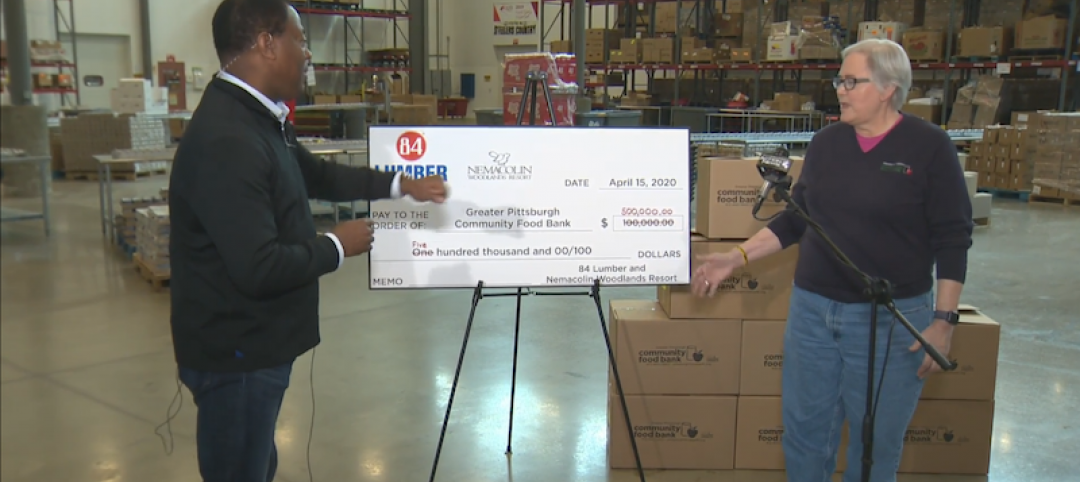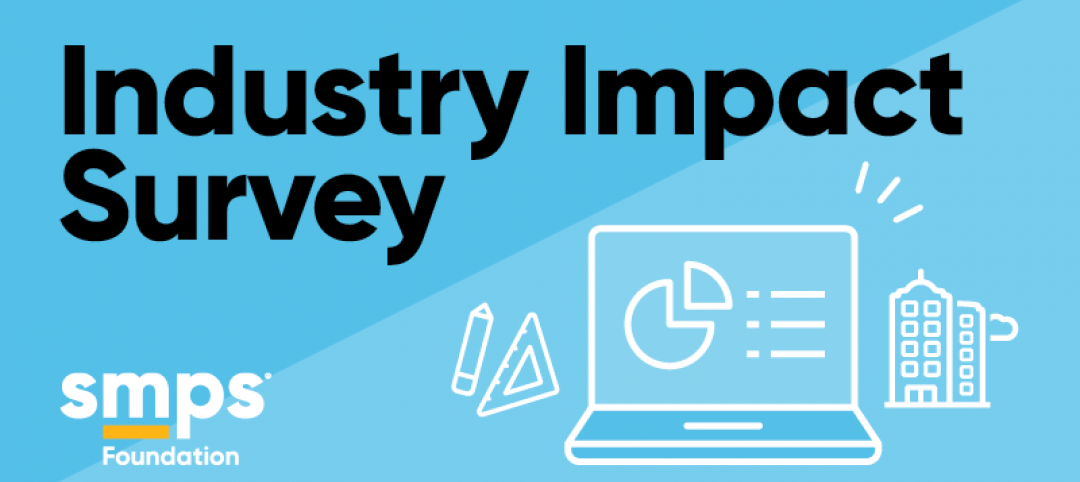As the coronavirus stubbornly persists in many parts of the U.S., COVID-19-specific buildings and products have been popping up in response.
Last January, Medline Industries, the largest privately held manufacturer and distributor of medical supplies in the U.S., started making face masks for the first time from a modified plant in Lithia, Ga., that, when fully operational later this year, will produce 36 million masks per month.
To support its core business units, Medline recently completed construction of a 130,000-sf, LEED-certified call center in Dubuque, Iowa, with over 1,000 workstations.
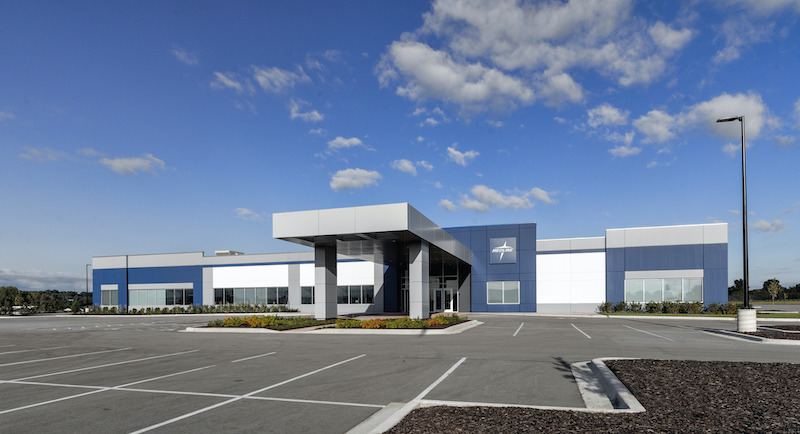 Medline's call center has over 1,000 workstations and is adding over 100 jobs to the market. Image: Charlie Mayer Photography
Medline's call center has over 1,000 workstations and is adding over 100 jobs to the market. Image: Charlie Mayer Photography
Working with the architecture design firm Ware Malcomb and general contractor Alston Construction, Medline’s goal for the call center was to create a “town within a town.” For example, adjacent to the cafeteria is a light-filled corner city center with access to an outside patio. A 5,200-sf gym/multipurpose room with a full-size basketball court is available to all employees. To encourage activity, the space includes a quarter mile track around the interior of the open office.
“It was our priority that the entire facility emphasizes connectivity and community,” says Dawn Riegel, Director, Interior Architecture and Design of Ware Malcomb’s Chicago and Oak Brook., Ill., offices. The call center added over 100 new jobs to the Dubuque market.
GETTING MORE PEOPLE VACCINATED FASTER
As of April 1, 29% of Americans had received one dose of the COVID-19 vaccine and 16% had received two doses, according to the Centers for Disease Control and Prevention. About 2.5 million people per day are being vaccinated, but the logistics of administering shots are still challenging for some municipalities and cities.
Among the solutions that have come onto the market is VaxMod, a modular system devised by the design firm Boulder Associates, which specializes in healthcare and senior living, and manufacturer The Boldt Company. VaxMod’s prefabricated units can provide safe and efficient COVID-19 vaccination settings for healthcare workers and individuals, and are set up for speedier delivery.
VaxMod consists of three modules, each 12- by 40-ft, although customers are allowed some tailoring. VaxMods can function as freestanding units or be connected to each other with segregated spaces for healthcare workers and patients.
According to The Boldt Company, VaxMod can vaccinate more than 1,100 patients per eight-hour shift with 27 full-time employees. That’s 39% more vaccines delivered per hour with 7% fewer staff than model vaccination clinics identified by the CDC. VaxMod is designed to handle both walk-in and drive-through patients, and is scalable to meet a specific community’s patient volume.
DRIVE THRU OR WALK-IN SERVCE
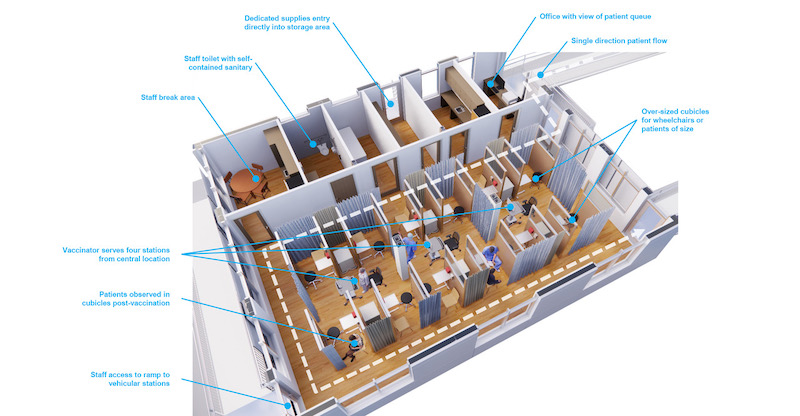 VaxMod is set up to deliver 1,100 vaccine shots during an eight-hour shift with only 27 workers. Image: The Boldt Company
VaxMod is set up to deliver 1,100 vaccine shots during an eight-hour shift with only 27 workers. Image: The Boldt Company
More precisely, VaxMod can be configured as a drive-through hub with a capacity for 104 vehicular vaccinations per hour. All traffic enters at one point for temperature and health screening. Individuals can check in and register for either walk-in or in-vehicle vaccinations. Canopies and covered stalls can be arranged in two loops around the central VaxMod, providing shelter for vehicles and resupply points for workers.
Simultaneously, VaxMod can serve 35 walk-in individuals per hour. Each unit houses 12 vaccination stations with specialized accommodations for individuals in wheelchairs. Individual cubicles are designed for privacy, social distance, and observation space after the vaccine is administered.
Boldt is cultivating sometimes of a specialty in the COVID arena. Last year, Boldt and the design firm HGA developed STAAT Mod, a prefabricated temporary hospital to help healthcare systems manage surge capacity during health crises. STAAT is short for Strategic Accuity-Adaptable Treatment, and the isolation rooms were designed with enough clearance for safe bed transfers, equipment, and a reclining chair. Boldt produces STAAT Mod and VaxMod modules in its Appleton, Wis., plant.
Also see: BD+C’s reporting on STAAT Mod
“Our experience in prefabrication means we can manufacture these facilities with better speed to market,” said Will Lichtig, executive vice president and chief of staff with The Boldt Company. “This allows us intense quality control, increased safety for our workforce, and the ability to meet an urgent need for healthcare organizations and our communities.”
Related Stories
Coronavirus | Apr 22, 2020
Architecture Billings Index points to major downturn in commercial construction
Largest monthly decline in billings a direct result of pandemic response.
Coronavirus | Apr 22, 2020
Construction activity in 2020 expected to drop steeply
[Dodge survey] Contractors girding for recession.
Coronavirus | Apr 21, 2020
COVID-19 update: CallisonRTKL, Patriot, PODS, and USACE collaborate on repurposed containers for ACFs
CallisonRTKL and PODS collaborate on repurposed containers for ACFs
Coronavirus | Apr 20, 2020
Virtual site visits help control infection on project sites
As COVID-19 threatens to slow construction work, point cloud technology helps us work safer and faster.
Coronavirus | Apr 19, 2020
IoT system helps contractors keep their distance on the jobsite
Triax Technologies’ wearable Proximity Trace device can be used for contact tracing.
Coronavirus | Apr 19, 2020
A COVID-19 task force focuses on crisis communications
The Castle Group is partnering with leading health experts to help companies factor science and medicine into their response messaging and actions.
Coronavirus | Apr 17, 2020
NMHC Multifamily Construction Survey shows significant delays in apartment construction
Survey asked construction firms how the spread of COVID-19 is affecting construction permitting, starts, completions, materials and labor.
Coronavirus | Apr 17, 2020
The case for public space in the age of COVID-19
As our daily footprint narrows under “stay at home” measures, we must reconsider our relationship with public spaces.
Coronavirus | Apr 16, 2020
COVID-19: Pennsylvania building products supplier raises $1.2 million for Pittsburgh-area food bank
Pennsylvania building products supplier raises $1.2 million for Pittsburgh-area food bank.
Coronavirus | Apr 15, 2020
How has your work been impacted by COVID-19?
The SMPS Foundation and Building Design+Construction are studying the impact of the coronavirus pandemic on the ability to attain and retain clients and conduct projects, along with other consequences.


